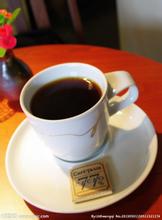Moderate acidity, fragrant and delicious Nicaraguan coffee flavor taste manor characteristics of boutique coffee
On 18 August 1986, the Constitution of Nicaragua was adopted by the National Assembly and entered into force in January 1987. The Constitution was amended three times in February 1995, January 2000 and December 2004. According to the Constitution, Nepal is an independent, free, autonomous, unified and indivisible country; the central authority of the state is composed of the President, the National Assembly, the Supreme Court and the Supreme Election Commission; the President and members are elected for a term of five years; the President is the head of State, the head of Government and the Supreme Commander of the Armed Forces The appointment of cabinet ministers by the President is subject to the approval of the Parliament, which has the power to remove government officials and to veto the President's veto of the bill. [1]
Parliament
The National Assembly of Nicaragua is unicameral and consists of 90 members for a term of five years. The Speaker has a term of office of one year and is eligible for re-election. The current Parliament was formed in January 2012, with 62 seats in the SPLF and 28 seats in the Independent Liberal Party. The current speaker, Rene Nunez, was elected in 2007 and has been re-elected ever since. [1]
The government
Nicaraguan soldiers
Nicaraguan soldiers
In January 2012, a new government was formed in Nicaragua. The main members are: vice President Omar Ayers Levin Acevedo, Minister of the Interior Anna Isabel Rosales (female), Minister for Foreign Affairs Samuel Santos, Minister of Finance Alberto Guevara, Minister of Defense Rutt Esperanza Tapia (female), Minister of Development, Industry and Trade Orlando Solorzano, Minister of Agriculture, Animal Husbandry and Forestry Ariel Bucaldo, Minister of Transport and Infrastructure Pablo Fernandez Martinez, Minister of Health Sonia Castro Gonzalez (female), Minister of Labour Heanes Chavez (female), Minister of Environment and Natural Resources Juana Ahniar (female), Minister of Energy and Minerals Emilio Rabacholi, Minister of Family and Youth Marcia Ramirez Mercado (female), Miriam Lauders (female), Minister of Education, Mario Salinas, Minister of Tourism, Bosco Castillo, Minister of Youth, and Aaron Patricia, Minister of Women, are Nicaragua's main exports. According to the president of the Nicaraguan Coffee Farmers' Federation, due to the poor harvest of coffee in Nicaragua's Pacific region, the country's total coffee production in 1998 may be 12% lower than that in 1997. In the 1997-1998 coffee year, Nicaragua harvested a total of 1.422 million bags (46kg per bag) of coffee, the best harvest in 14 years after coffee production hovered around 1 million bags. It is estimated that the income from coffee exports in 1998 will be about 1.6 billion US dollars, and Nicaraguan coffee production will drop sharply. Wei Kailei coffee is Nicaragua's main export product. According to the president of the Nicaraguan Coffee Farmers' Federation, due to the poor harvest of coffee in Nicaragua's Pacific region, the country's total coffee production in 1998 may be 12% lower than that in 1997.
"Nicaragua | Nicaragua Coffee Nicaragua coffee Nicaragua Coffee Bean w.kaf.name"
Nicaragua is one of the major coffee-producing countries, producing high-quality coffee. Even coffee from the Antigua Mountains of Guatemala, which is famous in Asia, imports raw beans from Nicaragua. Nicaraguan coffee is not well-known in Asia. But in fact, Nepalese coffee is already famous all over the world (Starbucks has many cooperative coffee farmers in Nepal), while the coffee quality produced by several coffee producing countries in Central America, such as Guatemala, Costa Rica and Nicaragua, is similar, mainly due to weather conditions, soil fertility, planting height and other conditions.
Nepalese coffee cultivation and production has a unique environment, the spread of fertile volcanic ash soil, coupled with shade planting methods, to establish a good production quality, Nepalese coffee has a rich mellow and fragrant taste, moderate acidity and a good sense of balance of bitter taste, which is regarded as top grade in the eyes of international coffee experts.
Because of the national character of the Latin American people, it is difficult for foreign buyers to do business with the Latin people directly. The Latin people do not attach importance to credit, do things too casually, the quality of shipments is uncertain, and the products exported are also mixed with sundries. But Latin America actually does have a good planting environment suitable for growing agricultural products all over the world, so we came to Nicaragua to ensure the quality of goods and deliver goods on schedule. It is hoped that coffee lovers can enjoy high quality Nepalese coffee.

Important Notice :
前街咖啡 FrontStreet Coffee has moved to new addredd:
FrontStreet Coffee Address: 315,Donghua East Road,GuangZhou
Tel:020 38364473
- Prev

Introduction to the characteristics of El Salvador boutique coffee beans with long-lasting flavor and taste manor
El Salvador implements nine-year compulsory education, with nine years in primary school and three years in secondary school. In 1995, the country's education budget was 1.74 billion kronor, accounting for 14.19 per cent of the national budget; in 1998, the resident literacy rate was about 77.8 per cent. The main domestic universities are the University of San Salvador and the University of Central America. In 2008, El Salvador accounted for 3.6 per cent of GDP on education expenditure. [8] Health 2008, El Salvador
- Next

Taste mellow Brazilian Coffee Flavor introduction to the characteristics of Fine Coffee in Manor
General K. Fonseka launched a coup on November 15, 1889, overthrowing the monarchy and establishing the United States of Brazil. Under the slogan of order and progress, and based on the presidential system to strengthen the modernization of Brazil, the new government has achieved good economic results in addition to producing 3/4 of the world's coffee. Later, under the panic of the world economy in the 1930s, the coffee economy suffered a deep pain.
Related
- Detailed explanation of Jadeite planting Land in Panamanian Jadeite Manor introduction to the grading system of Jadeite competitive bidding, Red bid, Green bid and Rose Summer
- Story of Coffee planting in Brenka region of Costa Rica Stonehenge Manor anaerobic heavy honey treatment of flavor mouth
- What's on the barrel of Blue Mountain Coffee beans?
- Can American coffee also pull flowers? How to use hot American style to pull out a good-looking pattern?
- Can you make a cold extract with coffee beans? What is the right proportion for cold-extracted coffee formula?
- Indonesian PWN Gold Mandrine Coffee Origin Features Flavor How to Chong? Mandolin coffee is American.
- A brief introduction to the flavor characteristics of Brazilian yellow bourbon coffee beans
- What is the effect of different water quality on the flavor of cold-extracted coffee? What kind of water is best for brewing coffee?
- Why do you think of Rose Summer whenever you mention Panamanian coffee?
- Introduction to the characteristics of authentic blue mountain coffee bean producing areas? What is the CIB Coffee Authority in Jamaica?

